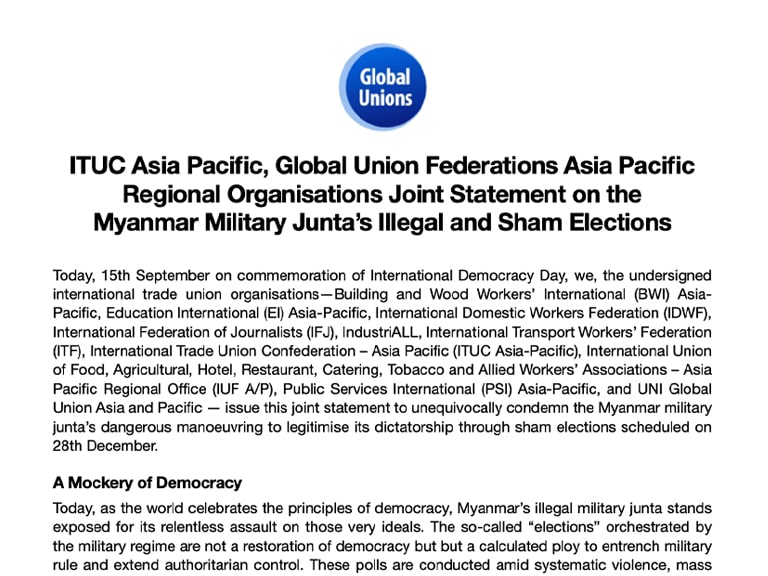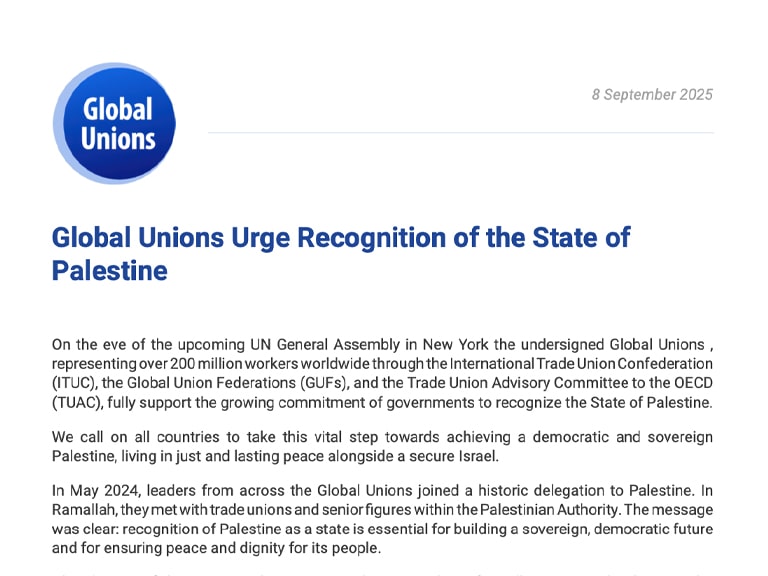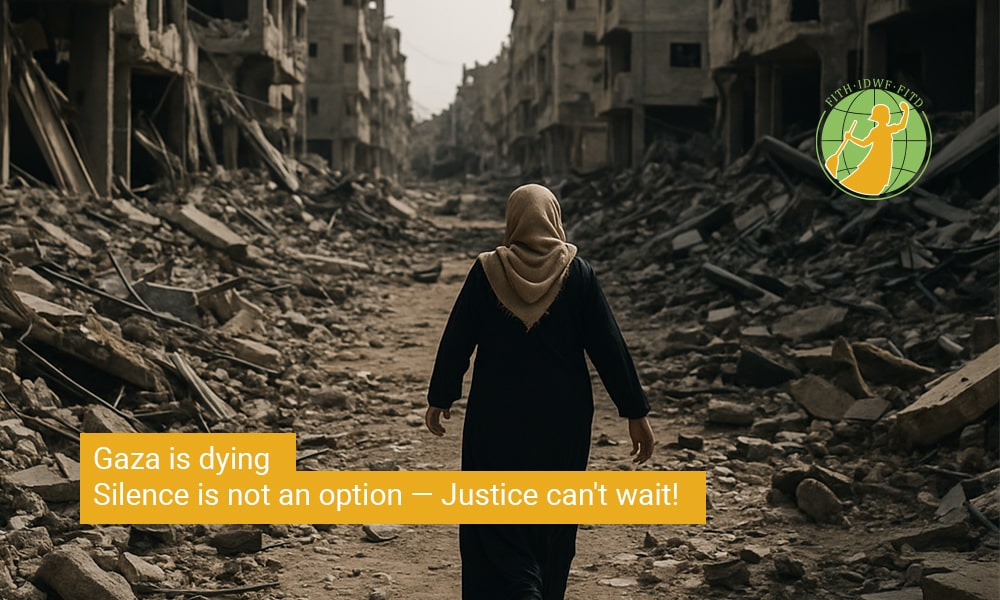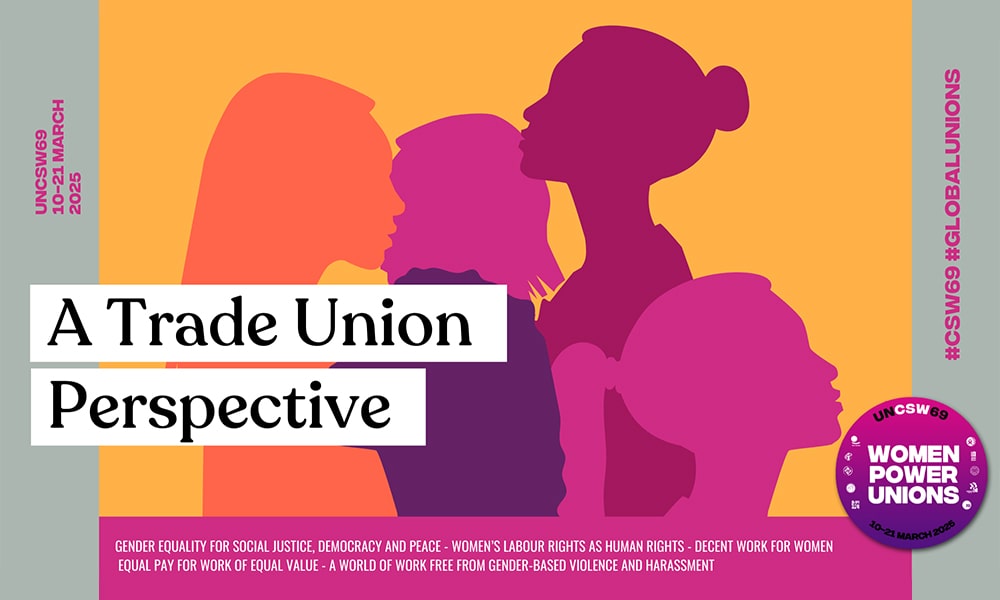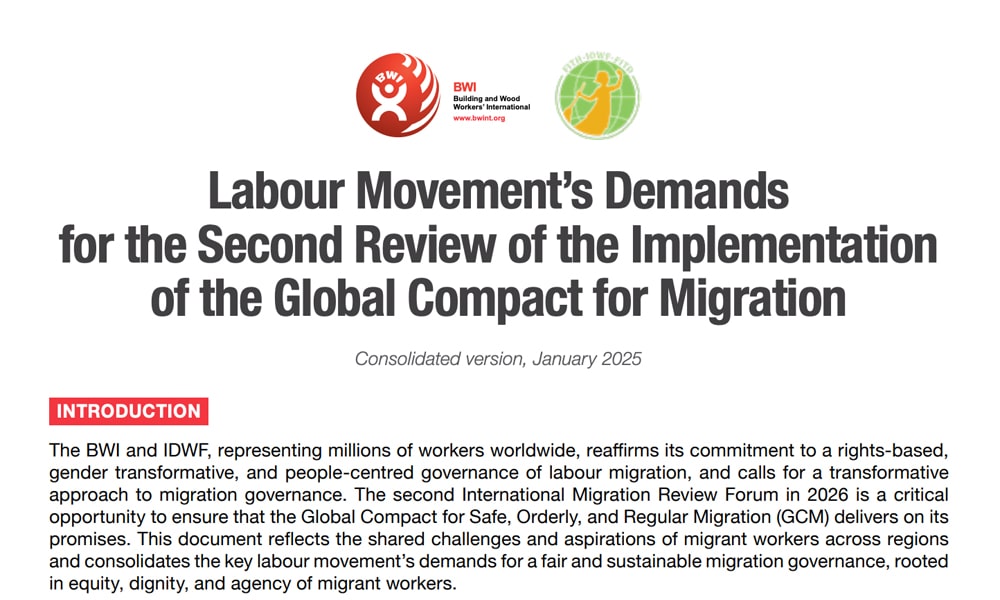The Seed of Hope is Planted and We Must Water it

IDWF STATEMENT ON THE INTERNATIONAL MIGRANT DAY 2022
A mission to unite the domestic workers of the world was the dream that our founding domestic worker unionists had almost ten years ago when they voted to create our federation, the International Domestic Workers Federation. Since then, we have been doing exactly that, fighting for every domestic worker in the world. Economies and societies are only as strong as their most vulnerable, and so is our movement: it is inspired by the continuous struggle of migrant domestic workers, who often find themselves experiencing additional layers of insecurity on top of those experienced by domestic workers at large.
The great majority of migrant domestic workers lack social protection, are exploited by recruitment agencies, and do not have the right to organize or join a trade union. In a sector that already lacks protections and experiences policy and implementation deficits, migrant domestic workers combat the same slavery mentality that branded people, bought and sold them, as they are treated as lesser than humans. More often than not, their passports confiscated, their visas are employer-tied, and their freedom of movement is taken away. Every day is a lockdown for many; years are spent in isolation, migrant domestic workers find themselves behind many barriers, metaphorical and physical, at times amounting to incarceration due to unfair conviction and criminalization of their status. They face hazardous working environments including discrimination, racism, xenophobia, gender-based violence, amounting to death.
Another year and another International Migrants’ Day, we find ourselves re-iterating many of the same demands of our movement:
First and foremost, freedom of Association for migrant domestic workers is not a luxury, it is a basic necessity for survival. We witnessed improvements in countries in Asia, Latin America, and the MENA region where local unions opened their membership to migrants. Nevertheless, this membership remains restricted as migrant domestic workers do not enjoy the full scope of membership rights, such as they are unable to become office bearers. Unions should not pick and choose which rights to grant to their migrant members, and similarly, states should not choose which rights to respect and which people to grant these rights to, for rights are indivisible and undeniable.
We also call for states to adopt, implement, and respect international standards dire to the protection of migrant domestic workers such as Migration for Employment Convention 97, the Migrant Workers Supplementary Provisions Convention 143, the International Convention on the Protection of the Rights of All Migrant Workers and Members of Their Families the Domestic workers Convention 189, and the Convention to End Violence and Harassment in the World of Work 190, and accompanying Recommendations. Instead of reliance on individual arrangements confined in the private sphere and difficult to inspect, migrant domestic workers should enjoy the full scope of rights outlined in these conventions, as any other worker. The enforcement of international standard also entails the abolishment of the Kafala system and employer-tied visa regimens.
Third, we want a justice system that works, and that works for the most vulnerable. Migrant domestic workers are frequently sidelined from accessing justice systems, if not by the text of the law, then by the myriads of obstacles put in place against mobility, accessibility, and affordability. Governments and trade unions should work together to prioritize addressing the needs of migrant domestic workers fighting legal battles, so they are not relegated to silence.
Migration for jobs in the care sector will continue to be a growing phenomenon as governments fail to meet the basic provisions of institutional care. Paid domestic work will remain to be the main source of employment for migrant women. If the conditions producing and maintaining the vulnerabilities of migrant domestic workers are not addressed, if effective policy solutions are not implemented, and if migrant domestic workers are not afforded the right to unionize, the gendered poverty gap of migrant domestic workers will sink deeper.
Almost ten years ago we vowed to unite domestic workers worldwide, almost five years ago we pledged to protect the rights of migrant domestic workers and prioritize their plights, especially where their rights are withheld and their existence is criminalized outside of narrow almost-enslavement parameters. Against this status quo ridden by injustice, the light of hope remains the untiring efforts of migrant domestic workers, fighting for justice. We remember the hundreds of migrant domestic workers who have paid severe personal cost to make their voice heard and to plant a seed of hope in an arid landscape of rights’ deficit. Migrant domestic workers planted this seed, and it must be watered. Migrant domestic workers cannot be reduced to silence no matter how difficult their situation is. We urge governments and trade unions to use theirs to support the fulfillment of migrant domestic workers’ demands.
Read more in the IDWF Position Declaration on the Occasion of the International Migration Review Forum (IMRF).
Download here
- Listen to our podcast from migrant domestic workers in Qatar on the occasion of International Migrant Day by clicking here.
- Check out the new mobile application developed jointly by IDWF, BWI Global and FIFPRO to help inform migrant workers of their rights and protections in Qatar and across the world here.

